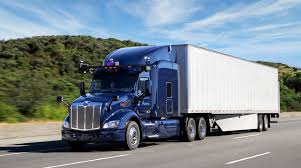
Motor carriers are those who transport goods or passengers by land, by water, or by air.
A motor carrier number is a type of identification number for a motor carrier. It is used to identify the company and its vehicles.
In most cases, it starts with two letters followed by seven digits. Each two-letter combination indicates what type of carrier it is:
AC – Air Carrier
AC – Acro Cargo
AV – Air Freight Forwarder
AM – Passenger Bus Line
AR – Rail Freight Forwarder
AX – Exchange Car Rental Agency
How are Motor Carrier Numbers Used in the Trucking Industry?
Motor carrier numbers are an important part of the trucking industry basics. They are used to identifying carriers, trucks, drivers, and loads.

A motor carrier number is an identification number assigned by the Federal Motor Carrier Safety Administration to a motor carrier or driver who has been issued a USDOT Number.
The assignment of a motor carrier number is based on whether your business operates within or outside the United States, and if you’re an individual or company. The process can be confusing, so it’s best to consult an expert for help with this.
What’s the Difference Between a Car Carrier and a Truck Carrier?
The main difference between the truck and car carriers is that truck carriers primarily specialize in transporting trucks, whereas car carriers specialize in transporting cars and other passenger vehicles.
Car carriers and truck carriers are two types of motor carriers that transport vehicles. The distinction between the two is complicated because there are many similarities. For example, both truck and car carrier companies need to maintain a motor carrier number, which is a unique identifying number – just like a license plate – that goes on each vehicle that they transport.
Car carriers are used for transporting cars because they can carry more than one vehicle at a time. Truck carriers are used for transporting both commercial and personal vehicles.
The main difference between these two types of transport is that truck carriers can transport heavy machinery, unlike car carriers.
Truck carriers are subject to different regulations than car carriers. For example, they need to have a motor carrier number or MCTO license in order to operate on the road. Carriers also need to abide by weight restrictions and other rules in order to get an MCTO license.
Motor Carrier Numbers in Trucking Industry – Everything You Need to Know
With the advent of technology, we have seen a significant transformation in the world of transportation and the trucking industry. Truckers are now able to find drivers with precision and efficiency, sending goods across the country faster than ever before.

The trucking industry is one of the most volatile industries in the US. It has seen a boom in the number of motor carriers but has also witnessed a dramatic downturn in recent decades.
The changing dynamics within the industry have given rise to an array of new opportunities for both drivers and companies.
A trucking company is any entity that owns or leases trucks and hires drivers to carry goods and services across state lines (and sometimes international borders).
The trucking industry employs over 7 million people worldwide, including 4 million workers within the United States alone.
Trucking companies can be classified into two major categories, depending on whether they transport goods or people.
In short, the motor carrier number is the base of any trucking industry.